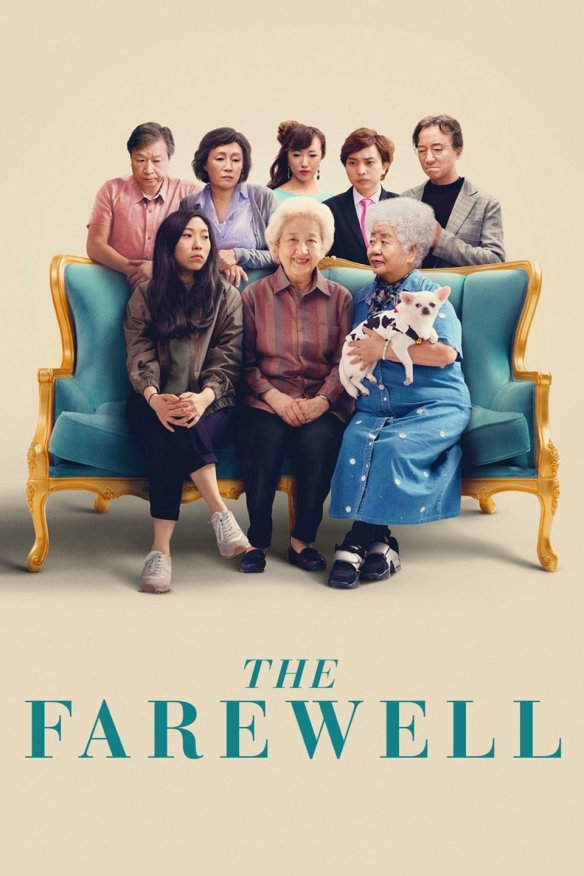
What would you do if someone you loved was dying, but you also couldn’t tell them? Would you stay away, for fear of revealing the secret? Or would you go to them, just so you could be at their side, one last time? These are the questions asked in The Farewell, a new movie starring Awkwafina, and directed by Lulu Wang. Based on Wang’s own experiences when she discovered that her grandmother had been diagnosed with terminal cancer, but her family was going to keep that fact a secret, the movie is powerful, poignant and a bunch of other p words that definitely mean good. My heart is aching just thinking about this movie. Wherever you are, go and watch this flick. It is worth your time.
Now, in case you’re thinking, “I’ve heard everyone gushing over this movie. It can’t possibly be that good,” I was in the same boat as you before I saw it. Whenever a film comes out that has a 100% approval rating on Rotten Tomatoes, which this one does, I’m always somewhat skeptical. It can’t be that fantastic. There have to be some flaws. And, you know what, there are elements of this movie that I didn’t care for. But they are so completely and utterly overwhelmed by the good in this picture—fantastic performances, charming characters, light comedy and sweet storytelling—that they really don’t matter.
I’ve heard certain people argue that, the more specific the narrative, the more universal it becomes, and this film would appear to validate that claim. It contains so many specific cultural elements that aren’t really common knowledge outside of the Chinese community—burning paper money for ancestors in the afterlife, hiring actors to cry at funerals—and yet, if the response from critics and audiences, most of whom are not Chinese, proves anything, it’s that the film’s themes speak louder than any superficial differences. This movie deals with issues that everyone can relate to—death, love of one’s grandparents, wanting to help, but not knowing how—and I think that fact is a large part of why the flick has done so well. The film spoke to me for very personal reasons. I, like the protagonist, am a struggling Chinese American writer, who lost a grandparent to lung cancer. But, at the same time, I saw this movie with a crowd of mostly White people, and they were bawling by the end. So you shouldn’t feel put off by the cultural specificity. Something in this flick will definitely speak to you.
Now in case it feels like I’ve built up this movie to an unreasonable degree, I do want to say a few things that will give you a more realistic idea of what to expect. This is a short, intimate drama, with a very small cast, that mostly takes place in dining rooms, bedrooms and hallways. There’s no flashy special effects, action scenes, or camerawork. The world is not at stake, like in Avengers: Endgame (which I have seen, but have no intention of reviewing), and no one really has an arc. This is a small story, with small stakes, and the film does everything in its power to remind you of that. Several scenes will play out in static, tripod-locked wide shots, and there are several sequences where the camera is angled in such a way that the characters will only take up the bottom third of the screen, leaving lots of space above their heads. Almost as if to remind us that these people’s problems aren’t that big, in the grand scheme of things. Oh yeah, and at least half the dialogue is in Mandarin, subtitled into English. And yet, none of this, none of it, detracts from this flick’s performances, its humor, and its emotional resonance. Is this the best film ever made? Probably not. But everyone I’ve spoken to who’s seen this has liked it, and I’m sure that if you see it, you’ll like it too.
